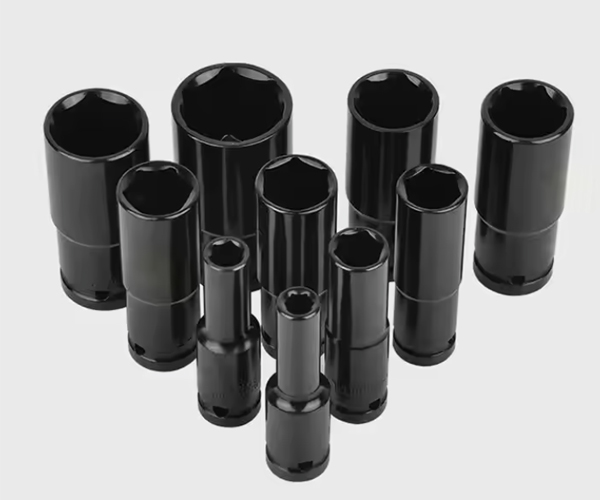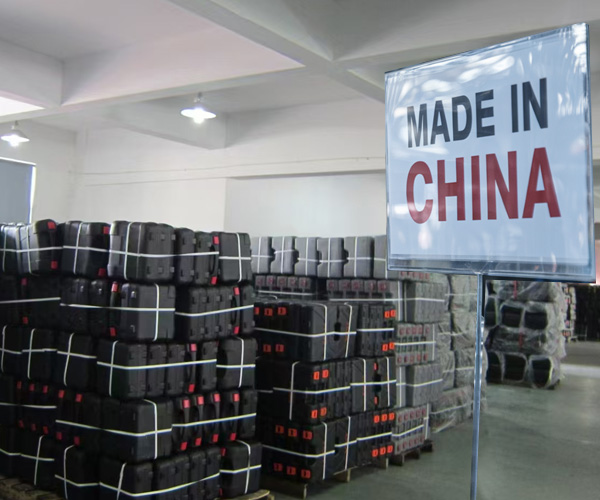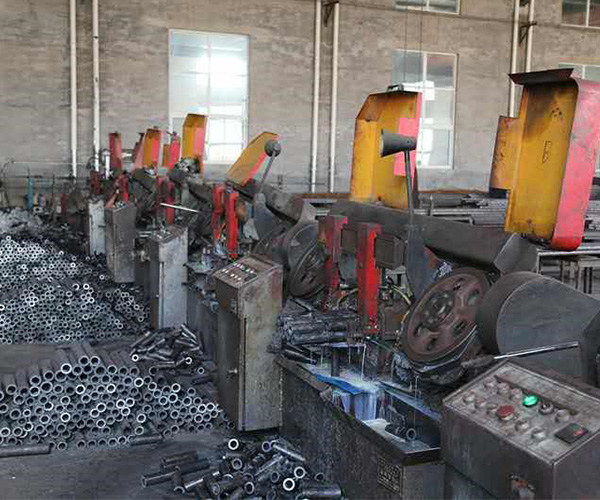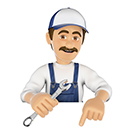Impact socket bit sets are essential tools for a wide range of professional and DIY applications. Whether you’re working on automotive repairs, home improvement projects, or construction, having the right tool to handle tough fasteners is crucial. One of the most common questions among users is whether impact socket bit sets can be used with all types of drills. The compatibility between your drill and an impact socket kit can have a significant effect on your work efficiency and the lifespan of your tools.
In this in-depth article, we’ll explore the functionality and compatibility of impact socket bit sets with various types of drills. We’ll also discuss the key factors that influence their use, including torque, chuck size, and drill type. Whether you are an experienced professional or a DIY enthusiast, understanding these elements will help you make informed decisions when choosing tools and accessories.
What Are Impact Socket Bit Sets?
An impact socket bit set typically includes a range of sockets, driver bits, extensions, and adapters that are designed specifically for use with impact drivers and impact wrenches. These tools are different from regular socket sets in several key ways, making them more suitable for heavy-duty tasks.
Impact socket bit sets are built to withstand high levels of torque generated by impact drivers. Unlike regular sockets, which can break or wear out under the pressure of an impact driver, impact sockets are made from more robust materials, such as chrome molybdenum or chrome vanadium steel, which have higher tensile strength and can endure the repeated impacts. The sockets are designed with thicker walls to prevent cracking under heavy use, making them ideal for tough applications like automotive repair, construction, and machinery maintenance.
Impact Socket Material is an important consideration when choosing an impact socket set. High-quality impact sockets are often made from chrome vanadium steel or chrome molybdenum steel, which are alloys known for their durability and resistance to wear and tear. These materials ensure that the socket will be able to handle the high torque output of an impact driver or impact wrench without getting damaged.
Components of an Impact Socket Bit Set
An impact socket bit set usually contains various types of sockets, extensions, and adapters, each designed for specific tasks:
- Sockets: The main components of any socket set, available in different sizes and depths to fit a range of fasteners.
- Driver Bits: These are the bits that fit into the chuck of an impact driver or drill, allowing you to drive screws and fasteners. They often come in various shapes, such as Phillips, flathead, Torx, and more.
- Adapters: These accessories allow you to use impact sockets with different drive sizes. For example, an impact socket adapter 3/8 to 1/2 allows you to use a 3/8″ socket with a 1/2″ impact driver.
- Extensions: These allow you to reach fasteners that are hard to access, providing additional length to your tools.

Why Are Impact Sockets Different from Regular Sockets?
Impact sockets are designed to absorb the shocks and vibrations generated by impact drivers. This is crucial because impact drivers use a combination of rotational force and hammering action, which can cause damage to regular sockets. Regular sockets, while great for drills and ratchets that apply constant torque, are not built to withstand the sudden, high-force impacts that impact drivers deliver.
On the other hand, impact sockets are reinforced to handle these impacts, ensuring they don’t crack or break. Additionally, impact socket retaining pins and impact socket retaining rings are often used to hold the sockets securely in place during use, preventing them from accidentally coming loose.
What Are Drills and How Do They Work?
Understanding the basic mechanics of drills is essential when considering their compatibility with impact socket sets. There are several types of drills available, and each operates differently. In general, drills are tools used for drilling holes or driving screws. However, the way they function varies depending on the type of drill.
Types of Drills
There are different types of drills available, each with its own functionality and intended use:
- Corded Drills: These drills are powered by electricity and provide a continuous source of power, making them ideal for extended use. They generally offer higher torque and consistent performance.
- Cordless Drills: Powered by rechargeable batteries, these drills offer greater mobility but may not provide the same level of torque as corded drills. However, modern cordless drills can be just as powerful as corded models, thanks to advancements in battery technology.
- Impact Drills: These drills, often referred to as impact drivers, combine rotational movement with a hammering action. The impact function delivers powerful bursts of torque, making it easier to drive screws and fasteners into tough materials.
- Hammer Drills: These drills provide a combination of rotary and hammering action, making them ideal for drilling into hard materials like concrete or masonry.
- Drill Drivers: These are standard drills designed for driving screws and drilling holes. They generally do not have the same impact function as impact drivers.
How Do Drills Work?
Drills use a rotating bit to make holes in various materials. The drill has a chuck, which holds the drill bit in place. The chuck is typically adjustable to accommodate different sizes of bits. The user can change the speed and direction of the drill using a trigger or a clutch system.
In impact drills, the motor produces a high torque output, and the hammering mechanism generates additional force. This allows the impact driver to loosen or tighten fasteners that might be too tight for a regular drill. This combination of rotational and hammering forces is what makes impact drivers the preferred tool for heavy-duty tasks, especially when used with impact socket kits.
Common Drills Used in DIY, Home, and Industrial Work
- Impact Drivers: These are often used for driving screws, bolts, and nuts into tough materials. They’re ideal for tasks like building decks, assembling furniture, and automotive repairs.
- Cordless Drill/Drivers: These are versatile tools that can be used for both drilling and driving screws. They are suitable for light to medium-duty tasks, such as hanging shelves, installing curtain rods, and basic woodworking.
- Hammer Drills: Hammer drills are great for drilling into concrete, brick, or masonry. The hammering action makes it easier to break through tough materials without damaging the drill bit.
- Corded Drills: While less common for casual users, these are still used in professional settings where high power and continuous operation are necessary.
In the context of impact socket kits, impact drivers are usually the most compatible tool. Their high torque and hammering action make them well-suited for handling the stresses that come with using impact sockets. However, it’s important to recognize the differences between the various types of drills to ensure the best results for your tasks.
Can You Use Impact Socket Bit Sets with All Types of Drills?
One of the most common questions about impact socket sets is whether they can be used with all drills. The short answer is no, impact socket bit sets do not work with all drills. However, the compatibility largely depends on the type of drill you are using and the nature of the task at hand. Let’s explore the different scenarios:
What Types of Drills Work with Impact Socket Bit Sets?
- Impact Drills: Impact drivers and impact wrenches are designed specifically to work with impact sockets. The hammering action and high torque output of these drills make them ideal for handling the stress that comes with using impact socket sets. These tools are built to withstand the sudden force and pressure generated by impact sockets.
- Cordless Drills: Many modern cordless drills feature adjustable torque settings, and some of them may work with impact socket sets. However, it’s essential to choose a drill that provides adequate torque. Low-torque drills may struggle to drive fasteners, especially large or rusted ones, and could cause the socket to slip or break. If you use a cordless drill without sufficient torque, you may risk damaging both the drill and the socket.
- Hammer Drills: Hammer drills also provide a combination of rotational and hammering action. While these can be used for tasks like drilling into concrete, they are not always ideal for driving fasteners with impact sockets. They lack the same consistent high-torque output as dedicated impact drivers, making them less efficient for heavy-duty fastening tasks.
What Type of Drills Are NOT Suitable for Impact Socket Bit Sets?
- Regular Drills: Standard drill drivers, which are designed only for drilling and light driving tasks, typically do not have the necessary power to use impact socket bit sets effectively. These drills usually lack the impact mechanism and high torque needed to drive fasteners that impact sockets are designed for. Using a regular drill with impact socket bits can result in stripped fasteners, damaged tools, or poorly driven screws.
- Low-Torque Drills: If your drill does not have adjustable torque settings or lacks the necessary power, using it with impact sockets is not advisable. The lower torque will not be able to drive or loosen tough fasteners properly, and it could result in damage to both the drill and the sockets.
The Role of Chuck Size and Compatibility
Another crucial factor when using impact socket bit sets with drills is the chuck size. The chuck is the part of the drill that holds the drill bit or socket securely in place during operation. It’s essential to understand that not all chucks are the same size, and this plays a significant role in determining whether your impact socket kit can be used with your drill.
Chuck Size Considerations
When selecting a drill to use with impact socket bit sets, one of the first things to check is the size of the chuck. The chuck size refers to the diameter of the opening where the bit or socket fits. Most standard drills use chucks with a size of 3/8 inches or 1/2 inch, but this is not always consistent across different brands and models.
- 3/8-inch Chucks: These are the most common size for many general-purpose drills. While these chucks can handle a range of drill bits, impact socket sets that require a 1/2-inch drive may not fit into a 3/8-inch chuck without an adapter.
- 1/2-inch Chucks: These are typically larger and can hold a broader variety of bits, including those used with impact socket kits. A 1/2-inch chuck is often preferred when using heavy-duty sockets like a 50mm impact socket or 36mm impact socket because they require a larger, more robust chuck to handle their size and the increased torque.
What Happens if the Chuck Size Doesn’t Match?
If you try to use an impact socket bit set with a drill that doesn’t have the appropriate chuck size, several problems can arise:
- Incompatibility: If the chuck cannot accommodate the drive size of the socket (for example, trying to fit a 1/2-inch drive impact socket adapter 3/8 to 1/2 into a 3/8-inch chuck), the socket will simply not fit into the drill. This results in wasted time and effort.
- Slipping or Loosening: Even if the socket can be fitted into a chuck that is too small, the reduced grip can lead to the socket slipping during use. This is particularly dangerous when dealing with high-torque applications, as it can lead to damage to the fastener or even cause injury.
- Damage to the Drill or Socket: Using the wrong size chuck with an impact socket bit set can cause unnecessary strain on both the drill and the socket. Over time, this can lead to premature wear or even breakage of the tools.

Adaptors to the Rescue
In some cases, adaptors can make impact socket sets compatible with drills that have different chuck sizes. For example, an impact socket adapter 3/8 to 1/2 allows you to use a 3/8″ socket with a drill or driver that accepts a 1/2″ drive, opening up more versatility. However, when using adaptors, it’s essential to ensure that the adapter is rated for the level of torque the impact driver produces. Some low-quality adapters may not withstand heavy-duty tasks, leading to failure.
What Happens When There’s No Compatibility?
If there’s a significant mismatch between the chuck size and the socket, the impact socket bit set may become ineffective. If the chuck can’t securely hold the bit, it can come loose while in use, potentially leading to accidents or even damaging the drill or the impact socket rail.
When selecting your impact socket set, it’s important to ensure that your tools are fully compatible with one another. For example, if you’re using a 1/2-inch drive impact socket set 3/4 with your drill, make sure that both the socket set and the drill are compatible in terms of size and torque.
Can You Use Impact Socket Bits in Regular Drills?
Many people wonder whether they can use impact socket bits with a regular drill, especially when they need a socket for a job but only have a standard drill. While it is technically possible, it is not recommended.
Understanding Impact vs. Regular Drills
Regular drills, or drill drivers, are designed to handle constant rotational force. They typically don’t have the additional hammering or pulsating action that impact drivers provide. Impact drivers are designed specifically to work with high-torque, short bursts of force, which makes them ideal for tasks that require power, such as loosening stuck fasteners or driving long screws.
When using impact socket bits with a regular drill, there are several things that can go wrong:
- Insufficient Torque: Regular drills are not designed to handle the high torque output of impact socket bits. Impact socket kits are built for tools that generate high levels of torque. Standard drills typically lack this capacity, which means the bits won’t work efficiently.
- Overheating or Damage: Using an impact socket bit set with a regular drill that isn’t designed for heavy-duty use could result in the drill overheating, the clutch slipping, or even damaging the impact socket pin or the socket itself.
- Slipping or Stripping Fasteners: Without the right torque, the socket may slip or strip the fastener, rendering the work ineffective and leading to frustration. You could also risk damaging the impact socket retaining ring, which is designed to securely hold the socket in place during use.
Effects on the Drill and Bit
When you use an impact socket set with a regular drill, you’re essentially forcing the drill to operate outside its intended capacity. Impact socket sets are engineered to withstand high-impact forces, but if those forces are applied to a regular drill, it can lead to the following:
- Premature Wear on Drill Bits: Regular drills are not designed to handle the extreme forces exerted by impact socket sets. Using them together can quickly dull or wear out the drill bits, making them ineffective for future use.
- Potential Drill Malfunction: If you continuously use regular drills for tasks that require higher torque, there’s a risk that the drill itself could malfunction or break down.
- Reduced Precision: The regular drill may not provide the same level of control and precision when driving screws or loosening bolts, especially when compared to an impact driver.
Therefore, it is generally not advisable to use impact socket bit sets with regular drills, as this could lead to tool damage and poor work results. It’s better to choose a tool that’s specifically designed for high-torque applications, such as an impact driver or impact wrench.
Can You Use Standard Drill Bits in Impact Drivers?
Now, just as impact socket bits are optimized for impact drivers, it’s important to understand that standard drill bits are not always suitable for use with impact drivers. Using a regular drill bit in an impact driver can cause a range of issues.
Compatibility Issues
Standard drill bits are not designed to withstand the high-impact forces of impact drivers. Impact drivers produce powerful bursts of force, which regular drill bits cannot handle. The force can cause the bits to break, dull prematurely, or even shatter if they are not made from materials that can withstand the pressure. Additionally, the geometry of impact-rated drill bits is designed to take the force differently, making them more durable when used with impact drivers.
What Happens If You Use Standard Bits in Impact Drivers?
- Breakage: The main issue with using regular drill bits in an impact driver is the risk of breakage. Because the impact driver is built to deliver sharp bursts of force, standard drill bits are likely to fracture or snap under these high-torque impacts.
- Decreased Lifespan: Standard bits will wear out much faster when used with impact drivers, resulting in frequent replacements and unnecessary costs.
- Inefficiency: Standard bits are not designed to cut or drill through tough materials while experiencing the repeated hammering action of an impact driver. This means you could end up with a slower and less effective drilling experience.
For these reasons, it’s crucial to use impact-rated drill bits when working with impact drivers or impact socket sets. Impact-rated bits are designed to endure the repeated impacts and high torque that an impact driver generates, ensuring they last longer and perform better.
Why Is Torque Important for Using Impact Socket Bit Sets?
Torque is the force that allows a tool to rotate. It plays a crucial role in impact socket kits, especially when working with tough materials or fasteners that require a higher amount of force to loosen or tighten.
What Is Torque?
Torque is essentially the rotational force that your drill or driver can exert. The higher the torque, the more power your drill can deliver. For tasks involving impact sockets, such as tightening nuts or bolts, the ability to apply a high amount of torque is necessary to prevent slippage or damage to the fastener.
How Torque Affects the Use of Impact Socket Bit Sets
Impact drivers are specifically built to generate high torque. This is why they are ideal for impact socket bit sets. When you use an impact socket set 3/4 or a 36mm impact socket, you need a tool that can deliver enough torque to handle the stress involved. Without adequate torque, the drill or driver will struggle to turn the fastener, and the impact socket retaining pin could be damaged.
The Consequences of Low Torque
When using a drill with insufficient torque for an impact socket set, the results can be disastrous:
- Slippage: Without enough torque, the socket may slip off the fastener, causing damage to the fastener, socket, or drill.
- Stripped Fasteners: If the drill can’t apply enough torque, the fastener may strip, making it almost impossible to remove or tighten.
- Increased Wear: Low torque can cause unnecessary wear and tear on both your drill bits and impact socket set, shortening their lifespan.

For these reasons, it’s essential to ensure that your impact driver or drill has sufficient torque for the task at hand. Always check the torque rating and choose the right tool for your impact socket kit to avoid damage and maximize performance.
In conclusion, impact socket bit sets are versatile and powerful tools designed for heavy-duty tasks that require high torque. However, they are not compatible with all drills. For optimal performance and safety, ensure that you use a properly matched drill or impact driver capable of handling high-torque forces. Consider chuck size, the tool’s torque rating, and whether the drill is designed for impact applications before pairing it with an impact socket set. By understanding these compatibility factors, you can enhance the longevity and effectiveness of your tools, ensuring that your projects are completed efficiently and professionally.
If you’re looking for high-quality impact socket kits, hand tools, or car repair tools, KOLARWIN is here to help! With our extensive range of reliable products, you can tackle any project with confidence. Whether you’re a distributor, a procurement officer, or a DIY enthusiast, we offer competitive pricing and top-notch customer support to meet your needs.
Don’t let the wrong tools slow you down—contact us today! Let KOLARWIN be your trusted partner in providing durable, high-performance tools for all your projects.
Reach out directly to our team info@kolarwinfo@kolarwin.comin.com for inquiries, custom orders, or any product questions. We’re committed to delivering quality products with exceptional service. Let’s get your next project started today!





